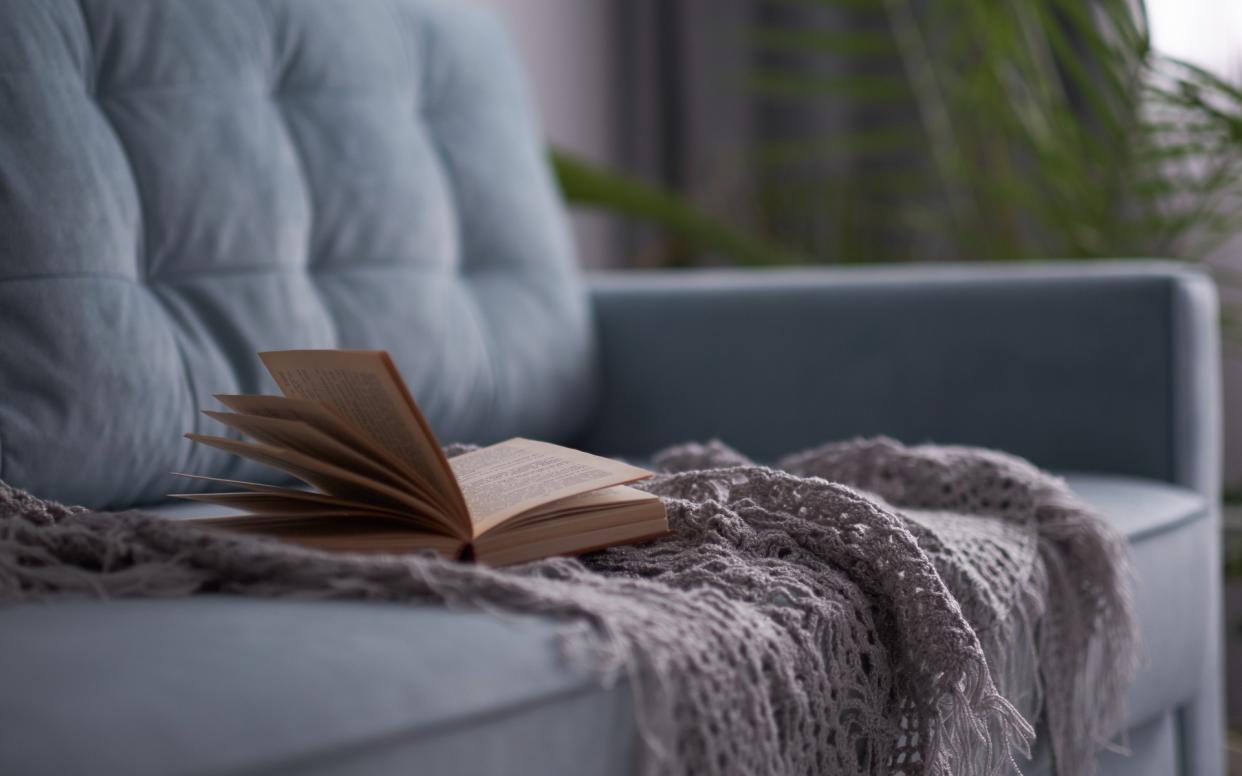5 comforting books about loneliness and solitude

- Oops!Something went wrong.Please try again later.
We independently evaluate all recommended products and services. If you click on links we provide, we may receive compensation.
Health officials have been warning about an "epidemic of loneliness" for years now. The isolation of quarantine during the Covid-19 pandemic and its lasting effects on overall mental health have put a point on how severe an issue loneliness can be. At the same time, many people learned to embrace being alone, finding solace in their solitude. Whether you're seeking ways to navigate out of loneliness, looking to commiserate about isolation or finding the beauty in your own company, here is a list of relevant books to keep you company.
'Project UnLonely: Healing Our Crisis of Disconnection' by Jeremy Nobel, MD, MPH (2023)
While working as a primary care doctor, Jeremy Nobel noticed that loneliness could be a serious health issue. He discovered a trove of research on the harmful impact loneliness has on mental and physical health, and made "loneliness-busting" the focus of his academic work. "Loneliness is a signal, like thirst," Nobel told Harvard Public Health. His latest undertaking, "Project UnLonely: Healing Our Crisis of Disconnection," is an offshoot of the signature "UnLonely" initiative at his nonprofit, the Foundation for Art and Healing. In the book, Nobel explores the roots of widespread isolation and proposes ideas for treating loneliness while lessening its social stigma. "Drawing on extensive experience and illustrative examples, Nobel offers practical remedies to a fundamental social problem," Kirkus Review said. Order here.
'Seek You: A Journey Through American Loneliness' by Kristen Radtke (2021)
Even though Kristen Radtke started her graphic novel "Seek You: A Journey Through American Loneliness," before the Covid-19 pandemic, it came out when the country was still reckoning with the isolation of social distancing. "I started writing about loneliness by accident," the author noted in an essay for The New York Times. In "Seek You," her second nonfiction graphic novel, Radtke melds images, cultural criticism, personal anecdotes from herself and others, and research from her exploration of American loneliness. Radtke "portrays loneliness not as innate or natural so much as socialized, filtered through and irradiated by culture, politics and media." Kady Waldman said in The New Yorker. Order here.
'The Lonely City' by Olivia Laing (2017)
Another book that infuses research and culture is Olivia Laing's "The Lonely City." The memoir explores urban isolation in one of the most bustling cities in the U.S., New York City. Laing approaches the subject of loneliness through the lens of art, the creative people behind the work, and her personal experience as a New York transplant. Laing moves "effortlessly between subjects," using "everything from biochemistry and urban theory to art criticism and technology" in her exploration of loneliness, Jason Heller wrote in a review at NPR. The author "invents new ways to consider how isolation plays into art or even the internet," Publishers Weekly added. "For once, loneliness becomes a place worth lingering." Order here.
'Solitude: In Pursuit of a Singular Life in a Crowded World' by Michael Harris (2017)
On the flip side of solemn isolation you can find the joys of solitude, something Michael Harris considers in his book, "Solitude: In Pursuit of a Singular Life in a Crowded World." Harris investigates how newer technologies like social media have encouraged an obsession with constant connection, and how that has influenced people's behavior in real life. Harris relies on neuroscience, the life stories of creatives and humor to explore the benefits of embracing stillness and spending time alone. Waterstones described Harris' book as "elegant, thoughtful and beautifully argued," and said it "makes a compelling case for why time spent in solitude is more crucial than ever in our hyper-connected world." Order here.
'Bluets' by Maggie Nelson (2009)
In her essay at the Times, Kristen Radtke said one of the best descriptions of loneliness she read was from Maggie Nelson's "Bluets." Loneliness, Nelson wrote, "is solitude with a problem." Another experimental take on autobiographical themes, Nelson's work is a stirring collection of prose poetry meditating on love, grief and the color blue. The Atlantic's Ruth Madievsky called the book "meditative, devastating and unexpectedly funny." Nelson chronicles her mounting obsession with the color blue as she navigates the pain of lost love. "The color does not replace the speaker’s aloneness, but it becomes its container," Madievsky added. Order here.

